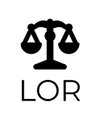Best Personal Injury Lawyers in Dublin
Share your needs with us, get contacted by law firms.
Free. Takes 2 min.
List of the best lawyers in Dublin, Ireland
About Personal Injury Law in Dublin, Ireland
Personal injury law in Dublin, Ireland is designed to protect individuals who have been injured due to the negligence, recklessness, or intentional actions of others. The legal framework provides mechanisms for injured parties to claim compensation for their injuries, including physical, psychological, and financial damages. Common types of personal injury claims include road traffic accidents, workplace accidents, medical malpractice, and slips, trips, and falls.
Why You May Need a Lawyer
Enlisting the help of a qualified personal injury lawyer can significantly enhance your chances of receiving fair compensation. Here are some common situations where legal expertise may be necessary:
- Severe injuries resulting in long-term disability or significant medical expenses.
- Disputes over liability where the responsible party denies fault.
- Complex cases involving multiple parties or severe negligence.
- Insurance companies offering inadequate settlements.
- The need to file legal documentation and adhere to strict timelines.
- Navigating through the intricacies of personal injury law to strategize an effective case.
Local Laws Overview
Personal injury law in Dublin is governed by a combination of common law principles and statutory law. Key aspects include:
- The Statute of Limitations: Generally, you have two years from the date of the injury to file a claim.
- Duty of Care: Establishing that the defendant had a duty to ensure your safety, which they breached.
- Litigation Process: Initiating proceedings usually involves filing a personal injuries summons in the appropriate court.
- Contributory Negligence: If you are partially at fault, your compensation may be reduced accordingly.
- Special Damage Claims: You can claim for specific financial losses incurred due to the injury, such as medical bills and lost wages.
Frequently Asked Questions
What is a personal injury claim?
A personal injury claim is a legal process wherein a person who has suffered harm seeks compensation from the party responsible for their injuries.
How long do I have to file a personal injury claim in Dublin?
In Dublin, the statute of limitations is typically two years from the date of the injury, but it is best to seek legal advice as soon as possible.
What types of compensation can I receive?
Compensation may include general damages for pain and suffering, special damages for out-of-pocket expenses, and sometimes punitive damages.
How is liability determined in a personal injury case?
Liability is usually established by proving that the defendant owed you a duty of care and breached that duty, causing your injuries.
Do I need to go to court for a personal injury claim?
Not necessarily. Many personal injury claims are settled out of court through negotiations between the parties involved.
What if I am partially at fault for my injury?
If you are partially at fault, your compensation may be reduced based on your level of contributory negligence.
How much does it cost to hire a personal injury lawyer?
Many personal injury lawyers work on a "no win, no fee" basis, meaning you only pay legal fees if you win your case.
What evidence do I need to support my claim?
Evidence can include medical records, witness statements, photographs of the accident scene, and any applicable reports (e.g. police or workplace accident reports).
Can I claim for psychological injuries?
Yes, you can claim for psychological injuries such as stress, anxiety, or PTSD, provided they are related to the incident.
How long does a personal injury claim take to resolve?
The duration varies depending on the complexity of the case, but typically it can take several months to a few years to reach a resolution.
Additional Resources
For further assistance and information, you may find the following resources helpful:
- Legal Aid Board: Provides legal information and representation.
- Citizens Information: Offers detailed guides on your rights related to personal injury.
- InjuryBoard.ie: A platform providing detailed information about personal injury claims in Ireland.
- Road Safety Authority (RSA): For information related to road traffic accidents.
- Health and Safety Authority (HSA): For workplace accident and safety information.
Next Steps
If you need legal assistance for a personal injury claim, consider the following steps:
- Gather all evidence related to your injury, including medical records, photographs, and witness statements.
- Contact a reputable personal injury lawyer who specializes in cases similar to yours.
- Schedule a consultation to discuss your case and understand your legal options.
- Follow your lawyer's advice on next steps, including whether to pursue settlement negotiations or file a lawsuit.
- Keep organized records of all communications, documents, and expenses related to your injury.
Taking these steps can help ensure that your personal injury claim is handled efficiently and effectively, maximising your chances of securing the compensation you deserve.
Lawzana helps you find the best lawyers and law firms in Dublin through a curated and pre-screened list of qualified legal professionals. Our platform offers rankings and detailed profiles of attorneys and law firms, allowing you to compare based on practice areas, including Personal Injury, experience, and client feedback.
Each profile includes a description of the firm's areas of practice, client reviews, team members and partners, year of establishment, spoken languages, office locations, contact information, social media presence, and any published articles or resources. Most firms on our platform speak English and are experienced in both local and international legal matters.
Get a quote from top-rated law firms in Dublin, Ireland — quickly, securely, and without unnecessary hassle.
Disclaimer:
The information provided on this page is for general informational purposes only and does not constitute legal advice. While we strive to ensure the accuracy and relevance of the content, legal information may change over time, and interpretations of the law can vary. You should always consult with a qualified legal professional for advice specific to your situation.
We disclaim all liability for actions taken or not taken based on the content of this page. If you believe any information is incorrect or outdated, please contact us, and we will review and update it where appropriate.













